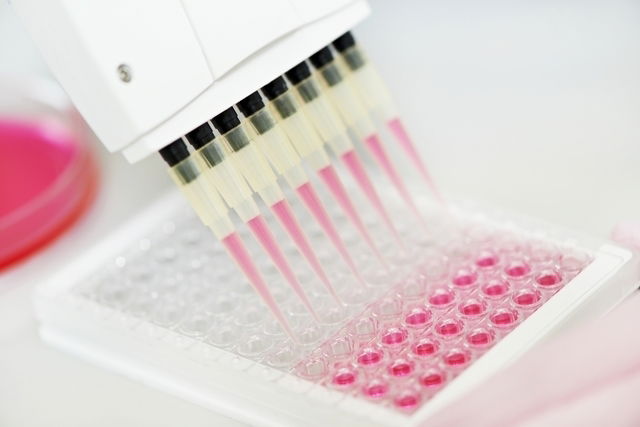An HBsAb test is blood test ordered to verify a person’s immunity against the hepatitis B virus. Hep B immunity can be acquired through vaccination or after having the virus.
The hepatitis B surface antigen (shortened to HbsAb) test is done by collecting a small blood specimen and evaluating whether hepatitis B antibodies are present. It is usually also ordered with HBsAg testing, which looks for active hepatitis B virus antigens in the blood. This test confirms whether the virus is present in the blood and is used for diagnostic purposes.
Once HBsAb levels and other bloodwork is assessed, the doctor can determine whether there is an active infection, and if the patient is presenting with associated symptoms. If a hepatitis B diagnosis is confirmed, the doctor will likely prescribe treatment, which typically involves rest, adequate nutrition and even medication in some cases.

What it tests
The HBsAb test assesses whether the immune system is producing antibodies that specifically protect the body from the hepatitis B virus. The doctor may order this test to confirm whether you have been immunized against hepatitis B in the past.
It can also be ordered to see whether treatment for an active hepatitis B infection was effective and if a cure was achieved.
HBsAg testing
An HBsAg test looks for hepatitis B antigens, which will be present if a person is infected with the virus or if they have recently been in contact with it. This test is used to diagnose hepatitis B.
Hepatitis B surface antigens, shortened to HBsAg, are proteins that are present on the surface of the hepatitis B virus cell. HBsAg can be found in the body in the presence of acute or chronic hepatitis. This blood test is usually ordered with the HBsAb test, to look for an active infection and to see if the body has produced an immune response to fight it.
How to test
To do an HBsAb test, fasting or prep is not required. A small blood specimen will be collected via venipuncture and sent to the lab for analysis.
The blood specimen is then tested for antibodies that specifically fight against hepatitis B. These antibodies are naturally formed in the body after coming in contact with the virus or after being vaccinated against Hepatitis B. Having antibodies circulating in the blood will provide longterm immunity.
What results mean
Results of an HBsAb test will vary depending on the concentration of antibodies found in the blood. Reference values are as follows:
- HBsAb under 10 mUI/ mL - Non-reactive. This concentration of antibodies is not sufficient to protect you against the hepatitis B virus. This result will prompt the doctor to advise immunization. If hepatitis B has been diagnosed, this result indicates that a cure has not been achieved, that the treatment is not effective an/or the infection is in its initial phases.
- HBsAb between 10 mUI/ mL to 100 mUI/ mL - Indeterminate or past vaccination. This concentration may indicate that the patient was vaccinated against hepatitis B, or has been in treatment. However, it is not possible to determine whether a cure from the infection was achieved. In these cases, testing should be repeated in 1 month.
- HBsAb over 100 mUI/ mL - Reactive. This concentration indicates the patient is immune to hepatitis B, either from vaccination or from curing the infection.
The doctor will evaluate the HBsAb results as well as the HBsAg results when the patient has been diagnosed with hepatitis B. A non-reactive HBsAg result and a reactive HBsAb result indicates that the patient has been cured and that there is no active virus cells circulating in the blood. A person who does not have have hepatitis B but is immune will have a non-reactive HBsAg result, and ab HBsAb concentration over 100 mUI/ mL.






























